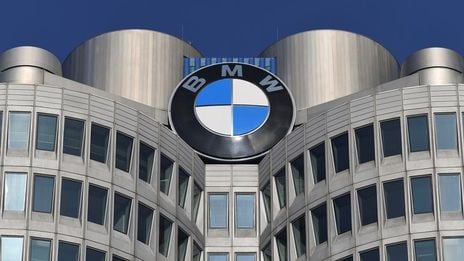European car sales slumped to a 17-year low in 2012 with only Britain bucking the trend with 5.3 percent growth, although at just over 2 million vehicles, sales were still 15 percent below the market peak in 2007.
This year, dealers are pushing cheap loans and special offers while also launching heavy sales pushes on fuel efficiency and stronger online tools to help persuade people to buy despite the on-going stagnation in the economy.
So far, their approach seems to be working. In January, registrations rose 11.5 percent year-on-year while in Germany and France they fell 8.6 and 15.1 percent respectively, European industry group ACEA said.
"Last year punters seemed to have loosened the purse strings a bit, maybe after a few years of not splashing out and because the economic doom and gloom wasn't as bad as it was," said Derek Jarvis, a car dealer in Bromley, south east England.
Auto industry body SMMT forecasts a 0.6 percent rise in 2013 and 2.6 percent in 2014, with the pace of growth dependent on how quickly consumer confidence recovers.
To take advantage of any confidence at all, Ford (>> Ford Motor Company) is offering many of its new models at more than a 12 percent discount, while GM's (>> General Motors Company) British Vauxhall unit is offering interest-free finance for up to 5 years and a deposit contribution on some models.
Carmakers can offer more flexible deals in Britain than in some other markets, said Gareth Dunsmore, general manager for marketing communications at Nissan Europe (>> Nissan Motor Co., Ltd.).
More and more vehicles were redirected to British dealers last year by European carmakers, convinced they had a better chance of selling them in the UK, while a mild respite in the pound-euro exchange rate during the second half of last year also helped their decision to push new cars into the British market.
"That's why volumes have gone up," said Trevor Finn, chief executive of Britain's top car dealer Pendragon (>> Pendragon PLC). "Nothing to do with Britain booming. It's to do with car manufacturers doing better deals because they can."
A stronger pound increases the margin on European-made cars sold in Britain and gives car companies more room to cut prices.
However, if the pound drops, as it has in recent months, that will change. In mainland Europe, offers have become so aggressive in order to shift stock that many cars are sold at a loss. Peugeot (>> PEUGEOT) has said it loses about 350 euros per car.
"I don't think mass market (car) makers are making much more than a 3 percent margin at the moment. I'd be happy with an average of 3 percent per sale in this economy," said Jarvis.
Britain's figures are also flattered by a practice known as self-registration, whereby carmakers offer hefty discounts to persuade dealers to buy cars they know they won't be able to sell, register them themselves, and then sell them on later as nearly-new cars.
John Leech, head of accountancy firm KPMG's UK automotive group, estimated about half of last year's growth could be due to self-registration.
Leech estimated a car manufacturer offering plenty of zero percent finance deals to lure customers could be adding up to four percentage points of discount to the seven percent discount typically offered to a dealer on a mass-market car.
To protect the bottom line, carmakers are also hoping to persuade drivers that they would save money in the long term by buying a new, more fuel-efficient engine.
"If you go back 3-4 years ago consumers were more worried about environmental damage and wanted to be green," said KPMG's Leech, adding that expensive hybrids and electric cars are now out of vogue. "That concern has evaporated with the recession."
Fuel costs are a hot topic in Britain where tax rises and higher oil prices pushed the average cost of a tank of petrol to about 90 pounds in 2012 from 70 two years earlier. Newer engines can cut as much as 15 pounds off a fill-up.
The fuel efficiency pitch could boost sales of Ford's Focus and Fiesta, which run on its Ecoboost one liter engine, as well as the new Volkswagen
ONLINE ATTRACTION
Carmakers and dealers are also luring Internet-savvy British buyers by investing in social media buzz, websites and online tools to compare fuel and financing deals.
AutoTrader data shows that 10 years ago the average British consumer visited at least five dealerships before buying a car. With more research online, they now visit an average of two.
Ford and Nissan spend over a third of their UK marketing budget online, up from about 10 percent a few years ago, as more shopping is done on screens.
For all the pitches, car sales could skid off course if the UK economy continues to bump along the border of recession and knocks consumer confidence, which hit a 12-month high in January in terms of people's expectations about making a big purchase.
Already, Britons are stretching their average car ownership to four-and-a-half years from three-and-a-half years, according to sales group Auto Trader.
"If the UK falls back into recession, the doom and gloom surrounding that could really put a spanner in the works," motor dealer Jarvis said.
($1 = 0.6350 British pounds)
(Editing by Stephen Nisbet)
By Rhys Jones and Helen Massy-Beresford

 By
By 



